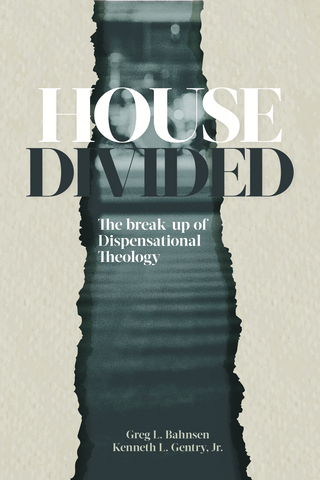Picking up with Gary’s interview with the Resistance Chicks from a few months back, this third part deals with Dispensationalism and how it influences both eschatology and politics.
It is evident from Scripture that with the coming of Christ (particularly after His formal, public manifestation at His baptism) the Kingdom has drawn near. There is a repeated emphasis on the proximity of the kingdom in His ministry. In Mark 1:14-15 we read: “Now after that John was put in prison, Jesus came into Galilee, preaching the gospel of the kingdom of God, and saying, The time is fulfilled, and the kingdom of God is at hand: repent ye, and believe the gospel” (cp. Matt. 4:12-17). Several aspects of this passage bear closer scrutiny.
First, notice carefully that He asserts “the time” is fulfilled. Of what “time” does He speak? Obviously the prophetic time which awaited the coming of the kingdom, for he immediately adds, “the kingdom of God is at hand.” Indeed, Jesus was sent by the Father in “the fulness of time” (Gal. 4:4), thus we may take comfort in the fact that “now is the accepted time; behold, now is the day of salvation” (2 Cor. 6:2), because the prophecies of “the acceptable year of the Lord” had begun to be fulfilled (Luke 4:16-21; cp. Isa. 61:1).
Second, Christ clearly asserts that the time “is fulfilled.” Actually a better translation of the verb tense and voice here (the perfect passive) would be: “The time has been fulfilled.” Apparently John the Baptist is significant for Christ as a sort of line of demarcation separating the fading kingdom-expectation era from the kingdom-fulfillment era, which begins dawning with John’s demise. Earlier John noted of Jesus: “He must increase, but I must decrease” (John 3:30). Jesus observes of John: “Verily I say unto you, Among them that are born of women there hath not risen a greater than John the Baptist: notwithstanding he that is least in the kingdom of heaven is greater than he. And from the days of John the Baptist until now the kingdom of heaven suffereth violence, and the violent take it by force. For all the prophets and the law prophesied until John. And if ye will receive it, this is Elias, which was for to come” (Matt. 11:11-14; cp. Mark 2:18-19; Luke 16:16).
Third, Christ clearly and pointedly says the kingdom is “at hand,” signifying “near, soon.” The root term (eggus) literally means “at hand.” The word is derived from the compounding of en (in, at) and guion (limb, hand).

House Divided: The Break Up of Dispensational Theology
The book that started a revolution. Bahnsen and Gentry stir the hornet's nest with this comprehensive refutation of Dispensationalism. The two pillars of law and eschatology are dealt with evenly, fairly—and most importantly—biblically. Bahnsen takes on the law sections, while Gentry handles the eschatology. Dispensationalism teaches that God has two distinct plans: one for Israel and one for the Church. Bahnsen and Gentry show clearly that God never intended or taught about separate plans. Quite the opposite, God's plan for Israel was but the first phase of His plan for the world. Jesus was both God's plan and His solution before the foundation of the world (1 Peter 1:17-21).
Buy NowPicking up with Gary’s interview with the Resistance Chicks from a few months back, this third part deals with Dispensationalism and how it influences both eschatology and politics. A major problem with the paradigm is how it separates God’s future plans into two, with one for the Jews and another for the Church.

